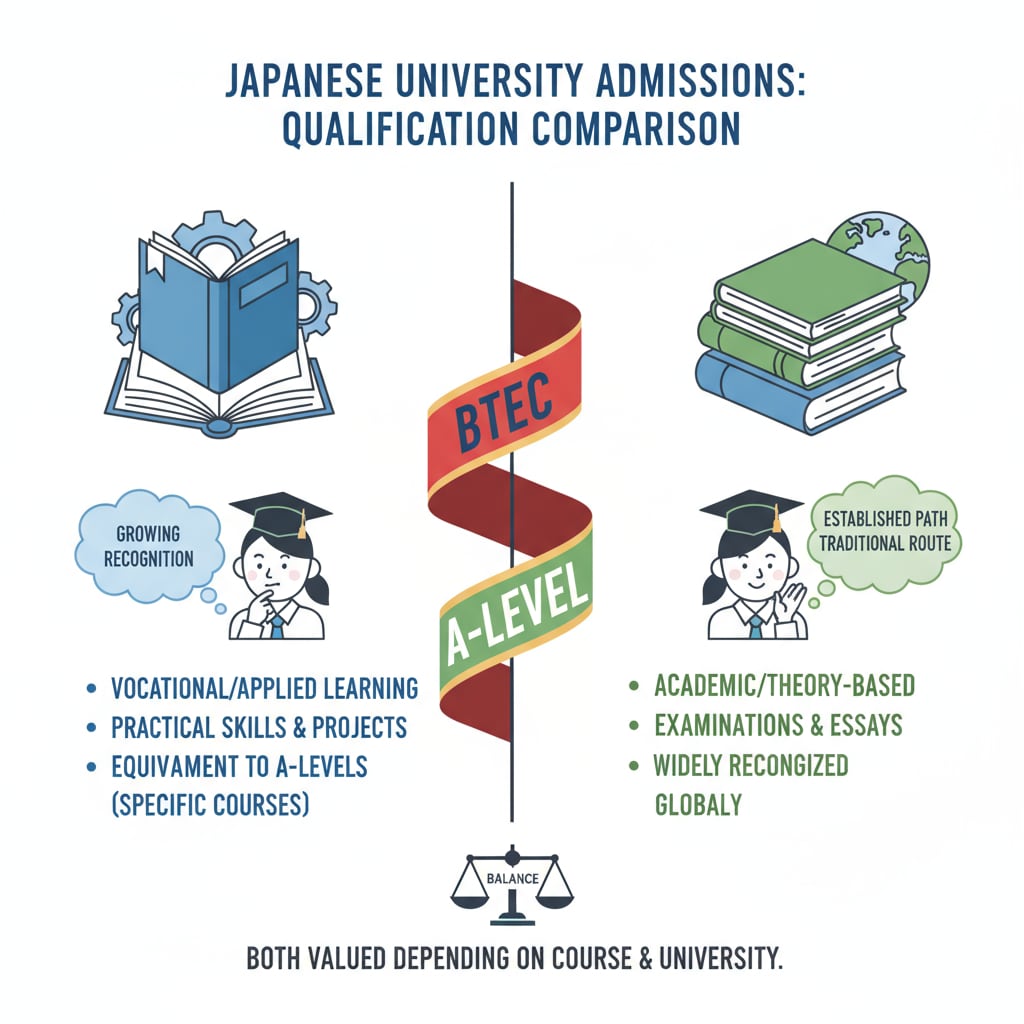For students with a BTEC (Business and Technology Education Council) qualification from the UK, the prospect of studying at a Japanese university brings unique opportunities and challenges. The journey involves understanding Japanese universities’ recognition of international qualifications, the equivalence of BTEC compared to other common international qualifications like A-levels, and formulating effective application strategies. This article will comprehensively analyze these aspects to provide a clear roadmap for BTEC holders aiming to study in Japan.

Japanese Universities’ Recognition of International Qualifications
Japanese universities have a structured approach to recognizing international qualifications. Most institutions require international students to meet specific academic criteria, which often include having a recognized secondary education qualification. For BTEC holders, this means that the Japanese universities will first assess the BTEC qualification’s validity and equivalence to Japanese educational standards. According to Japan’s Ministry of Education, Culture, Sports, Science and Technology, they have guidelines for evaluating foreign qualifications. However, the process can be complex as different universities may have slightly different requirements.
BTEC and A-level Equivalence in the Context of Japanese University Admissions
When comparing BTEC to A-levels in the context of Japanese university applications, it’s important to note that while A-levels are more widely known in the international education sphere, BTEC also has its own merits. A-levels are traditional academic qualifications, while BTEC focuses more on vocational and practical skills. Some Japanese universities may view BTEC as equivalent to A-levels in certain fields, especially those related to business, technology, and applied sciences. For example, in a business program, the practical skills and industry-relevant knowledge gained through a BTEC may be highly valued. As explained on Wikipedia’s BTEC page, BTEC courses are designed to provide hands-on experience, which can be an advantage in Japanese university programs that emphasize practical learning.

Practical Application Strategies for BTEC Holders
Firstly, BTEC holders should research Japanese universities thoroughly. Identify institutions that are more likely to recognize and value their BTEC qualification. This may involve looking at the university’s international student admission policies, the specific requirements of the desired program, and any past experiences of students with similar qualifications. Secondly, it’s crucial to prepare a strong application package. This includes a well-written personal statement highlighting the skills and knowledge gained from the BTEC program, transcripts, and letters of recommendation. In addition, some Japanese universities may require students to take entrance exams or submit language proficiency test results, such as TOEFL or JLPT (Japanese Language Proficiency Test), depending on the program.
Readability guidance: As we’ve seen, understanding the recognition of international qualifications, the equivalence of BTEC to A-levels, and formulating application strategies are key steps for BTEC holders applying to Japanese universities. By following these guidelines, students can increase their chances of a successful application and embark on an exciting educational journey in Japan.


